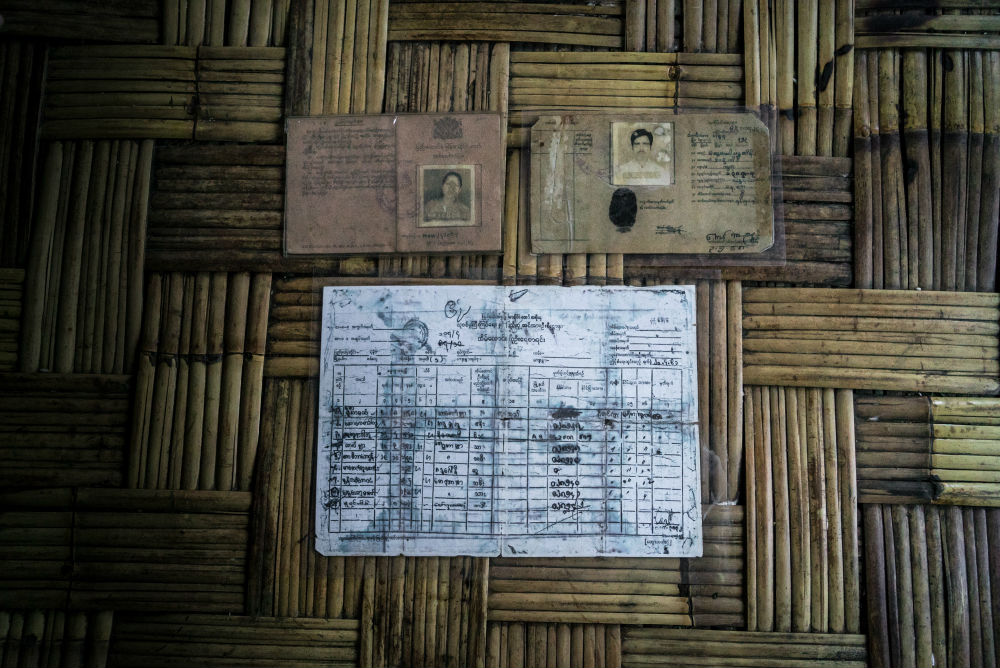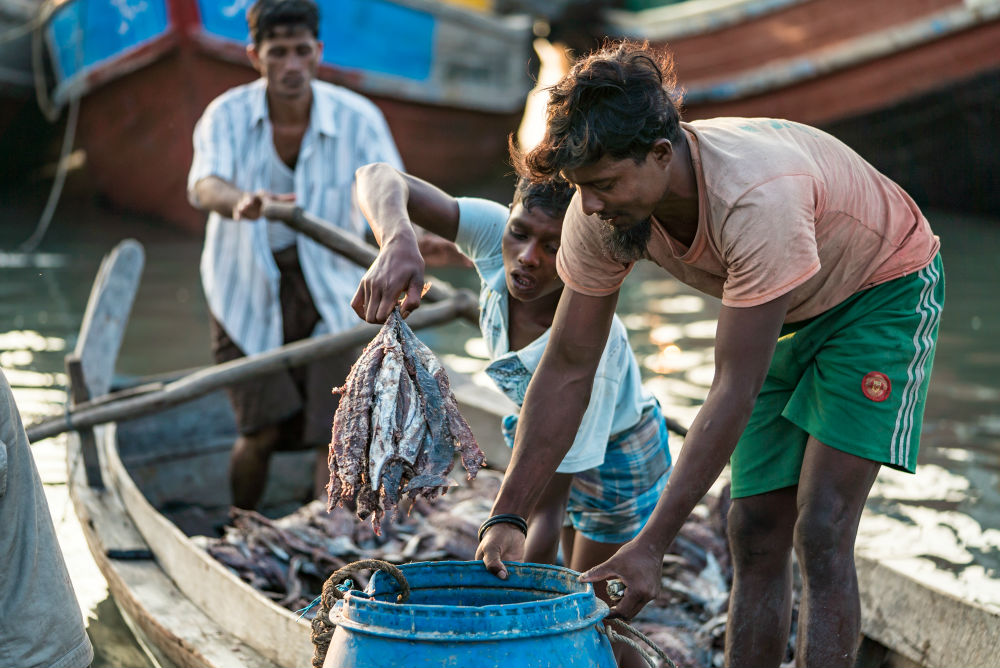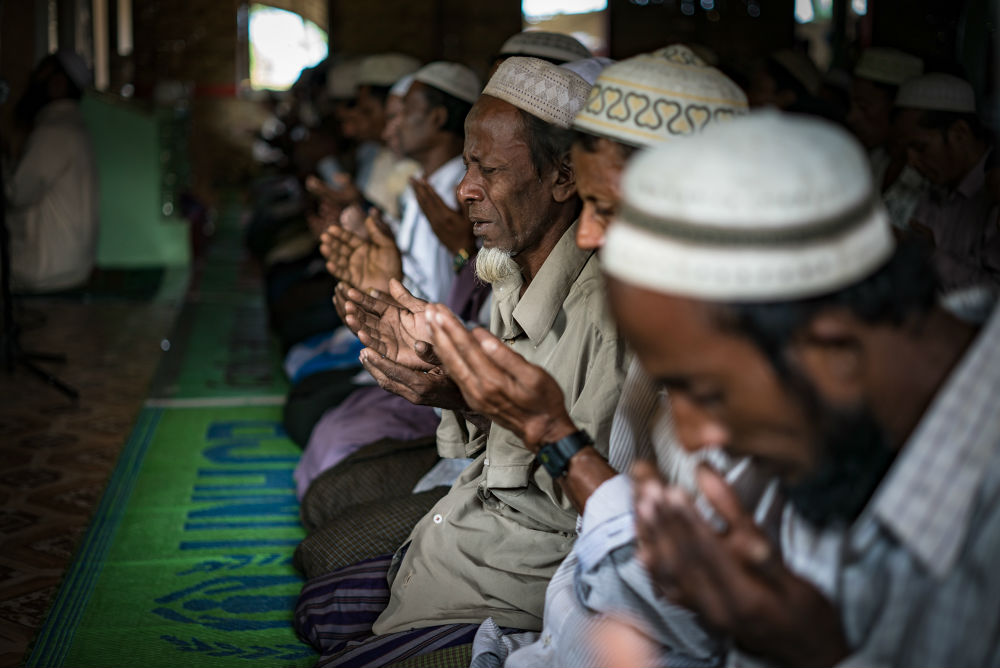By Alexander Hotz
“This is proof that we are citizens!” said U Kyaw Hla Aung, a 76-year-old Rohingya Muslim from Myanmar’s Rakhine state, as he clutched a laminated piece of paper. “Look!”
The paper is a National Registration Card, an identity document issued in the 1950s by the then Union of Burma. In today’s Myanmar, these documents mean nothing.

The human rights activist and lawyer U Kyaw Hla Aung holds up his National Registration Card, which was issued in the 1950s and proves he is a Myanmar citizen. Today the Myanmar government does not recognize these documents. Photo: Alexander Hotz / Coconuts Yangon
Rohingya like Kyaw Hla Aung are no longer recognized by the state: hundreds of thousands have been confined to overcrowded camps for internally displaced people since violence broke out with the Rakhine Buddist community in 2012.
The government claims the Rohingya, many of who have lived here for generations, are illegal migrants from Bangladesh.

National Registration Cards for the grandparents of one Rohingya family that is planning to flee to Malaysia this year. Many Rohingya cherish these documents since they are often the only official documents that can prove citizenship. Photo: Alexander Hotz / Coconuts Yangon
For many journalists covering their plight, a meeting with Kyaw Hla Aung is an important one.
The community leader and activist was educated as a lawmaker and worked in Myanmar’s courts for decades, before the Rohingya were banned from the civil service.
He’s been jailed numerous times. He spent seven years behind bars from 1990 to 1997 and almost a year in 2014 for political activism. He was released in October after an international outcry.
He also worked with Médecins Sans Frontières before the organization was kicked out of Rakhine state after the authorities accused it of favoring Rohingya over the Buddhist population.
The Rohingya live in desperate conditions. Malnutrition and disease are common and medical treatment almost nonexistent. Education beyond the fourth grade is out of reach for all but a tiny minority and jobs are scarce. Residents refer to the camps as “a prison”.

Thet Key Pyin camp, one of the largest IDP camps in Rakhine state, is home to over 5,000 people. Photo: Alexander Hotz / Coconuts Yangon
During last year’s dry season, thousands fled on rickety boats seeking work in Malaysia or Thailand, prompting a regional migrant crisis.

Rohingya fishing boats outside of Sittwe, the Rakhine state capital. Photo: Alexander Hotz / Coconuts Yangon

Rohingya fishermen offload salted fish to be sold in the IDP camps. For the Rohingya lucky enough to have a job, fishing is an important only source of income. Photo: Alexander Hotz / Coconuts Yangon
A recent report issued by Yale University Law School found that the Rohingya are facing the “final stages of genocide”: the removal of the group from collective history.
And that’s why, if you visit, many Rohingya will present you with their families’ most cherished possessions: old and battered identity documents, often sealed in plastic.
These papers could be an ancient National Registration Card belonging to a grandmother, the tattered birth certificate of an uncle or the diploma of a father.
These documents are their only proof that they belong in Myanmar.
“This is our country!” Kyaw Hla Aung exclaimed. “We are citizens of this country!”






Reader Interactions